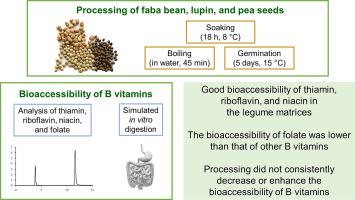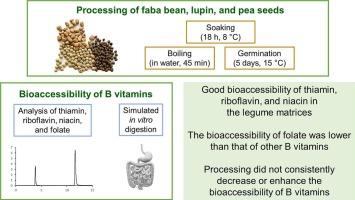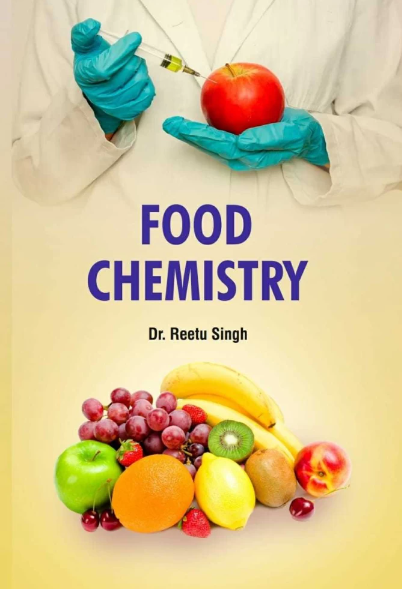Bioaccessibility of thiamin, riboflavin, niacin, and folate in legume matrices
IF 9.8
1区 农林科学
Q1 CHEMISTRY, APPLIED
引用次数: 0
Abstract
Legumes are potential sources of B vitamins. Knowledge regarding the liberation of vitamins from legumes and their stability in digestion is scarce. Hence, we examined the thiamin, riboflavin, niacin, and folate contents and their in vitro bioaccessibility in dry, soaked, boiled, and germinated legume seeds. The contents in faba bean, lupin, and pea mainly retained in soaking (18 h, 8 °C) but decreased by 13–62 % in boiling (45 min). Germination (5 days, 15 °C) retained or increased the contents in faba bean and lupin seeds, and vitamins were synthesised in sprouts. The bioaccessibility of thiamin, riboflavin, and niacin was generally good (64–128 %), whereas the bioaccessibility of folate was lower (19–68 %) likely due to instability in digestion. Processing did not consistently enhance or diminish the bioaccessibility. The bioaccessible B vitamin contents varied among differently processed seeds, being the lowest in boiled seeds and the highest in dry seeds.


豆科基质中硫胺素、核黄素、烟酸和叶酸的生物可及性
豆类是维生素B的潜在来源。关于从豆类中释放维生素及其在消化中的稳定性的知识很少。因此,我们检测了干燥、浸泡、水煮和发芽豆科种子中硫胺素、核黄素、烟酸和叶酸的含量及其体外生物可及性。蚕豆、罗平豆和豌豆在浸泡(18 h, 8 ℃)中含量主要保持不变,在煮沸(45 min)中含量下降13-62 %。发芽(5 天,15 °C)保留或增加了蚕豆和卢平种子的含量,芽中合成了维生素。硫胺素、核黄素和烟酸的生物可及性一般较好(64-128 %),而叶酸的生物可及性较低(19-68 %),这可能是由于消化不稳定所致。加工并没有一贯地提高或降低生物可及性。不同加工方式的种子生物可及性B族维生素含量差异较大,煮熟种子含量最低,干燥种子含量最高。
本文章由计算机程序翻译,如有差异,请以英文原文为准。
求助全文
约1分钟内获得全文
求助全文
来源期刊

Food Chemistry
工程技术-食品科技
CiteScore
16.30
自引率
10.20%
发文量
3130
审稿时长
122 days
期刊介绍:
Food Chemistry publishes original research papers dealing with the advancement of the chemistry and biochemistry of foods or the analytical methods/ approach used. All papers should focus on the novelty of the research carried out.
 求助内容:
求助内容: 应助结果提醒方式:
应助结果提醒方式:


